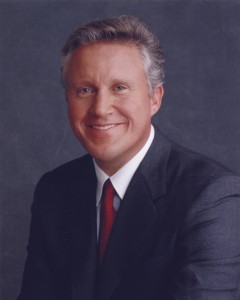Executive compensation shoots up

For many of the top-paid chief executives in Westchester and Fairfield counties, the downturn is over.
In Fairfield, six CEOs who made more than $4.6 million in 2009 experienced increases in their total compensation packages ranging from 38 percent to 116 percent last year.
Those included Jeffrey Immelt, chairman and CEO of General Electric Co., based in Fairfield, whose total compensation increased from $9.89 million in 2009 to $21.43 million in 2010, and Stephen Angel, chairman and CEO of Praxair Inc., based in Danbury, whose total compensation increased from $10.18 million in 2009 to $15.33 million in 2010.
In Westchester, five CEOs who made more than $4.5 million in 2009 experienced increases ranging from 19 percent to 30 percent in their 2010 total compensation packages.
Those included Mario Gabelli, chairman and CEO of Gabelli Asset Management Company Investors, based in Rye, whose total compensation increased from $43.58 million in 2009 to $56.61 million in 2010, and Samuel Palmisano, chairman and CEO of IBM Corp., whose total compensation increased from $24.31 million to $31.72 million.
Among 20 of the area”™s top-earning companies in 2010, the median compensation for chief executives in Fairfield County was up by 6 percent from 2009 levels, while it was down nearly 3 percent in Westchester.
A recent study by Equilar, a California-based firm that specializes in tracking executive compensation and other compensation figures, found that the median compensation for 200 of the top-paid chief executives in the U.S. was $10.8 million in 2010, an increase of 23 percent from 2009, according to the report. The study was conducted on behalf of The New York Times.
Separate research conducted by the Business Journal examined the total compensation packages of 10 of the top-earning chief executives from Westchester-based companies and 10 of the top-earning CEOs from Fairfield-based companies, comparing 2009 numbers against 2010 data, made available through the U.S. Securities and Exchange Commission and companies”™ annual financial reports.
The total compensation numbers were drawn from proxy statements filed with the SEC, which detailed salaries, bonuses, stock awards, option awards, changes in pension value and nonqualified deferred compensation earnings and other sources of compensation.
Analysts questioned the sizes of many of the compensation increases.
“It is disturbing and troubling, and even when they make these austerity measures ”“ these are guys that are just getting paid unbelievable amounts of money,” said Christopher Jordan, president and CEO of LEXCO Wealth Management Inc., based in Tarrytown. “In the end, it gives a lot of people in Westchester, Fairfield, and the surrounding areas a really uncomfortable feeling.”
In many cases, though, Jordan said that companies are able to justify such compensation packages if the company is performing at a high rate.
“It”™s a fine line ”“ it”™s capitalism,” Jordan said. “They are public entities, but in free markets. If you and I could go out and buy a CEO for higher than we”™re paying our current CEO, but he raises profits, you could say that”™s a really good investment.”
At General Electric, where Immelt”™s compensation increased by 116 percent, the company”™s net earnings rose from $11.03 billion in 2009 to $11.64 billion in 2010, an increase of 5.5 percent. At GAMCO Investors, net income was up nearly 25 percent from 2009 to 2010, and at IBM, net income was up nearly 10.5 percent. However, at Praxair, where Angel received a 50 percent boost in his total compensation, net income fell by 4.7 percent from 2009 to 2010.
William Mooney, president of the Westchester County Association, a business-based membership organization in White Plains, said that the national trend of compensation increases for the highest-paid chief executives is cause for concern.
“The absolutes bother me more than the percentages,” Mooney said. “What I mean by that is if you”™re making ten million a year and you get a 23 percent increase, then I question that.”
He said that the issue is not just salaries, but the increases in total compensation.
“A couple years ago I was very critical about some of the executive salaries that were being done nationally, and not only the salaries but the entire compensation structures,” Mooney said. “I think that 23 percent strikes me as being pretty high,” he said, referring to the Equilar study.
Jordan said that the issue of executive compensation will likely drag on.
“It”™s going to be an ongoing tug-of-war,” he said. “There”™s no easy fix, that”™s for sure.”